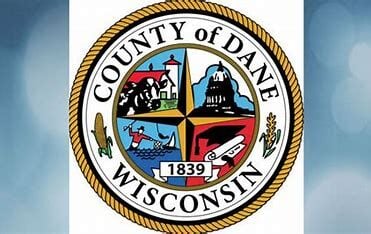Record-breaking year for county tourism – fitchburgstar.com

Dane County Achieves Record-Breaking Tourism Growth in 2024
Overview of Tourism Impact
Dane County experienced unprecedented growth in tourism in 2024, marking a significant milestone for the region. According to data released by Tourism Economics, direct visitor spending reached $1.55 billion, representing a 3.8% increase compared to the previous year. The county welcomed 9.2 million visitors, generating a total economic impact of $2.65 billion across the hospitality sector.
Economic and Employment Benefits
- Tourism supports nearly 20,000 hospitality jobs in Dane County.
- The industry workforce expanded by 500 new jobs in 2024, totaling over 19,300 employees.
- Visitor spending growth was observed across all major sectors:
- Food and Beverage: $450 million (+$15M)
- Lodging: $375 million (+$13M)
- Retail: $318.5 million (+$10M)
- Recreation & Entertainment: $193 million (+$11M)
- Transportation: $212 million (+$6M)
Collaborative Efforts Driving Sustainable Tourism
Dane County Executive Melissa Agard emphasized the importance of partnerships in achieving this growth, highlighting contributions from:
- Wisconsin Department of Tourism
- Destination Madison
- Downtown Madison Inc.
- Greater Madison Area Chamber of Commerce
- Local Chambers of Commerce across Dane County
- Alliant Energy Center team
- Land and Water Resources Team and Dane County Parks
These stakeholders have played vital roles in marketing, event recruitment, visitor support, and environmental stewardship, which align with the principles of the Sustainable Development Goals (SDGs), particularly:
- SDG 8: Decent Work and Economic Growth – by creating jobs and fostering economic development.
- SDG 11: Sustainable Cities and Communities – through promoting sustainable tourism and community engagement.
- SDG 12: Responsible Consumption and Production – by encouraging sustainable visitor spending and resource use.
- SDG 15: Life on Land – by protecting natural parks and outdoor recreational areas.
Commitment to Inclusive and Sustainable Growth
Executive Agard stated that the county’s success is the result of deliberate investment in community strengths and a commitment to ensuring tourism benefits all residents. The focus remains on:
- Supporting local businesses and public services through tourism revenue.
- Showcasing Dane County’s natural, cultural, and economic assets.
- Maintaining sustainable practices that protect environmental resources.
- Promoting equitable opportunities across all regions of the county.
These efforts contribute to the broader agenda of the United Nations’ Sustainable Development Goals by fostering economic resilience, environmental sustainability, and social inclusion within Dane County.
1. Sustainable Development Goals (SDGs) Addressed or Connected
- SDG 8: Decent Work and Economic Growth
- The article highlights the growth of tourism in Dane County, which supports nearly 20,000 hospitality jobs and adds 500 new jobs in 2024, contributing to economic development and employment.
- SDG 11: Sustainable Cities and Communities
- The focus on tourism that benefits local communities, supports public services, and promotes local businesses aligns with creating sustainable and inclusive urban and community development.
- SDG 12: Responsible Consumption and Production
- The article mentions investments in local strengths and environmental champions, implying efforts towards sustainable tourism and responsible use of natural resources.
- SDG 15: Life on Land
- References to Dane County Parks, Land and Water Resources Team, and outdoor opportunities indicate attention to conservation and sustainable management of natural habitats.
2. Specific Targets Under Those SDGs
- SDG 8 Targets
- Target 8.3: Promote development-oriented policies that support productive activities, decent job creation, entrepreneurship, and innovation.
- Target 8.5: Achieve full and productive employment and decent work for all.
- Target 8.9: Develop and implement policies to promote sustainable tourism that creates jobs and promotes local culture and products.
- SDG 11 Targets
- Target 11.4: Strengthen efforts to protect and safeguard the world’s cultural and natural heritage.
- Target 11.6: Reduce the adverse per capita environmental impact of cities, including by paying special attention to air quality and waste management.
- SDG 12 Targets
- Target 12.8: Ensure that people everywhere have the relevant information and awareness for sustainable development and lifestyles in harmony with nature.
- SDG 15 Targets
- Target 15.1: Ensure the conservation, restoration, and sustainable use of terrestrial and inland freshwater ecosystems.
- Target 15.9: Integrate ecosystem and biodiversity values into local planning and development processes.
3. Indicators Mentioned or Implied to Measure Progress
- Economic Indicators
- Visitor spending amount ($1.55 billion in direct visitor spending)
- Number of visitors (9.2 million visitors)
- Economic impact on hospitality sector ($2.65 billion)
- Number of jobs in hospitality sector (over 19,300 jobs, with 500 new jobs added)
- Tourism and Community Indicators
- Growth in spending categories such as Food and Beverage, Lodging, Retail, Recreation & Entertainment, and Transportation
- Investment in local community services and businesses supported by tourism revenue
- Environmental and Sustainability Indicators (Implied)
- Presence and maintenance of parks and outdoor recreational opportunities
- Efforts by Land and Water Resources Team and environmental champions to support sustainable tourism
4. Table: SDGs, Targets, and Indicators
| SDGs | Targets | Indicators |
|---|---|---|
| SDG 8: Decent Work and Economic Growth |
|
|
| SDG 11: Sustainable Cities and Communities |
|
|
| SDG 12: Responsible Consumption and Production |
|
|
| SDG 15: Life on Land |
|
|
Source: fitchburgstar.com








